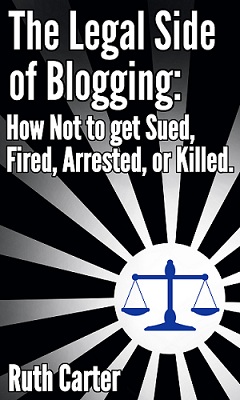This has been on my to-do list for months and I’m finally making it a priority – the firm is starting its newsletter this month.
The goals of my firm’s monthly newsletter are to be short, relevant, and useful. Each edition will address one timely topic and provide updates from the blog and my speaking schedule. It may take me a few months to figure out the best days and times to do my mailings, but you should only get one email a month.
 Will my newsletter have a shameless plug for my book? Of course! But I promise it will not be the main content. This newsletter is designed to offer helpful tips and suggestions to my subscribers, not to boost my book sales. If that’s a side effect, it’s just a bonus.
Will my newsletter have a shameless plug for my book? Of course! But I promise it will not be the main content. This newsletter is designed to offer helpful tips and suggestions to my subscribers, not to boost my book sales. If that’s a side effect, it’s just a bonus.
So how can you subscribe? It’s easy – you can subscribe to the newsletter here. Please note you have to add yourself to my mailing list. I will not add you without your explicit request and consent. One of my pet peeves is meeting a new person at a networking event, exchanging business cards, and finding myself added to their newsletter mailing list the next day without consent. I promise not to spam you or to sell my mailing list to third parties.
The first edition of the newsletter is scheduled to be delivered on Wednesday, November 28th. Please subscribe now if you’re interested in receiving it.
You can connect with me via Twitter, Google+, Facebook, and LinkedIn, or you can email me.
Please visit my homepage for more information about Carter Law Firm.










